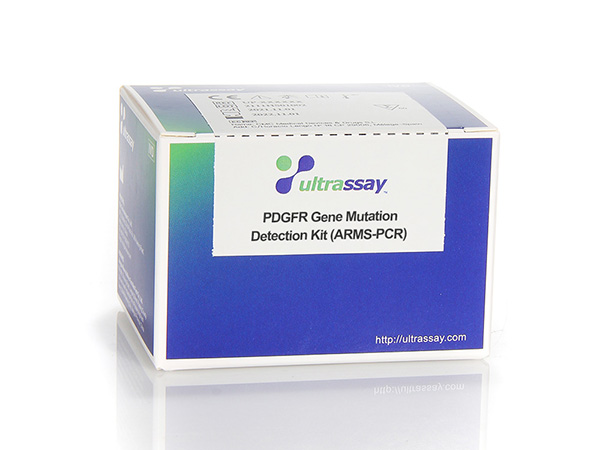PDGFR (Platelet-derived growth factor receptor) is an important member of the PDGFR signal transduction pathway. It is a single-chain transmembrane glycoprotein belonging to the tyrosine type III protein kinase family and distributed in human tissues. Such as smooth muscle cells SMC, fibroblasts, endothelial cells, glial nucleus chondrocytes and so on. PDGFR, including PDGFRα and PDGFRβ, plays an important role in promoting tumor cell proliferation, invasion and neovascularization. After binding to the ligand, the dimerization of various subunits of the receptor, activation of tyrosine kinase region and self-phosphorylation of the receptor occur, leading to cascade reactions of different signal transduction pathways, which play an important role in cell mitosis, cytoskeletal rearrangement, chemotactic selection and other closely related events of growth and proliferation. PDGFR binding to its ligand can directly enhance the degradation of intercellular adhesion molecules and promote tumor invasion and metastasis.
Some gastrointestinal stromal tumors cannot be confirmed by immunohistochemistry, and their diagnosis depends on the detection of gene mutation types. More than 80% of gastrointestinal stromal tumors are PDGFRα mutations, which can be detected at the early stage of tumor formation. There are three types of PDGFR mutations: exon 12 (3%), exon 14 (< 1%), exon 18 (97%), and detection of gene mutations can further confirm the diagnosis of CD117 and DOG1 negative patients. Therefore, the detection and monitoring of PDGFRα gene mutations are imperative in the diagnosis and treatment of gastrointestinal stromal tumors.
UltraDx PDGFR Gene Mutation PCR Kit is based on fluorescent PCR platform, combined with two technologies of mutation-specific primers and molecular probes of specific genes, to detect mutant genes contained in DNA samples, and use the relative CT values of PDGFRα mutant genes and total PDGFRα genes to determine genotype. The targeted sequence labeled fluorophores were FAM, HEX and Texas Red.
Applicable sample type: The priority was: fresh diseased tissue > Frozen pathological sections > Paraffin tissue.
Applied Biosystems™ Real time PCR system 7500, ABI QuantStudio™5 Real-time PCR system, LightCycler® 480 PCR system, Bio-Rad CFX96 real-time PCR instrument. Ultrassay eQ9600 Real Time qPCR System etc.



